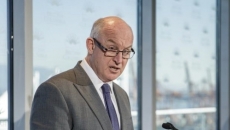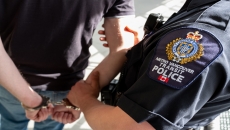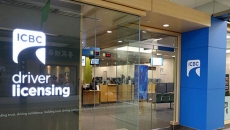VANCOUVER - Efforts to provide COVID-19 vaccines to as many drug users as possible in Vancouver's Downtown Eastside have paid off, prompting an advocate to urge communities with similar, vulnerable populations across the country to learn lessons from a targeted, well-resourced approach.
Karen Ward said a study that showed high vaccine uptake in the neighbourhood also suggests a co-ordinated strategy can work with a marginalized group that sometimes faces discrimination in the health-care system.
Ward, who was not involved in the study, said drop-in clinics, including at a community centre, a market, a hotel parking lot and the office of a drug users group, made getting vaccinated easy, with little waiting around.
"There were street nurses. They walked around and said, 'Anybody need a shot?'"
"If you actually make the effort and you put in resources properly, you can do it," said Ward, a drug user who advises the City of Vancouver on overdose response and policies around illicit substances.
Hudson Reddon, a co-principal investigator on the study and a post-doctoral research fellow with the BC Centre on Substance Use and the University of British Columbia's department of medicine, said 275 drug users were recruited and seen once every two months between June 2021 and March this year.
By the end of January, 64 per cent of participants reported having two doses of a vaccine while nine per cent had also received a booster shot and 16 per cent were unvaccinated, the study found.
That's compared with 81 per cent of people in the general population who had two doses by that time while 39 per cent received a booster and 14 per cent were unvaccinated, according to provincial data.
By the end of March, 91 per cent of people aged 18 years and older in the local health area that includes the Downtown Eastside had two doses of a vaccine, the study found.
That matches figures across the province for the same age group.
The Downtown Eastside was the first neighbourhood where Vancouver Coastal Health offered COVID-19 vaccines, after vaccination of residents and staff at long-term care and assisted living homes and high-priority health-care workers, the health authority said.
"For over a year, we held a minimum of three clinics per week in various locations," it said in a statement on its strategy, which took outreach workers to shelters and single-room occupancy hotels, where the virus could spread rapidly.
Reddon said targeted efforts made an impact, but they need to continue as pandemic restrictions are lifted.
Study participants cited the convenience as one of the reasons to get vaccinated, while many worried they'd get infected and pass the virus on to friends and family, he said.
"For a lot of them, they mentioned that not having a phone or computer to register was a real challenge," Reddon said.
He said the high rate of vaccination among a typically stigmatized group that is at higher risk for contracting infectious diseases is a positive message from the study.
"It's an important lesson to take from this, that people are getting vaccinated for similar reasons that we see in the general population."
Drug users did not trust the health-care system after a much more muted response to the overdose crisis, especially since the province declared a public health emergency six years ago, resulting in over 8,800 deaths across B.C. since then, Reddon said.
A key component of the study was inclusion of a drug users advisory board, which ramped up acceptance by the community, he said.
"They don't feel like it's something that's just being handed down to them and instead, it's something they've co-developed and they think has their best interest at heart."
Ward, who said she has received three doses of a vaccine, echoed those sentiments, saying other jurisdictions would do well to incorporate the experience of drug users into health-care initiatives that involve them.
"Consult widely, quickly, ask what would work. Try everything."






